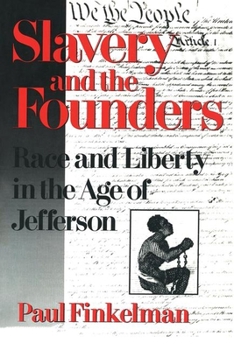Slavery and the Founders: Dilemmas of Jefferson and His Contemporaries
Select Format
Select Condition 
Book Overview
This text studies the attitudes of the founding "fathers" toward slavery. Specifically, it examines the views of Thomas Jefferson reflected in his life and writings and those of other founders as expressed in the Northwest Ordinance, the Constitutional Convention and the Constitution itself, and the fugitive slave legislation of the 1790s. The author contends: slavery fatally permeated the founding of the American republic; the original constitution was, as the abilitionists later maintained, "a covnenant with death"; and Jefferson's anti-slavery reputation is undeserved and most historians and biographers have prettified Jefferson's record on slavery.
Format:Paperback
Language:English
ISBN:1563245914
ISBN13:9781563245916
Release Date:November 1995
Publisher:Routledge
Length:226 Pages
Weight:0.82 lbs.
Dimensions:9.3" x 0.8" x 6.0"
Age Range:18 years and up
Grade Range:Postsecondary
Customer Reviews
customer rating | review
There are currently no reviews. Be the first to review this work.















